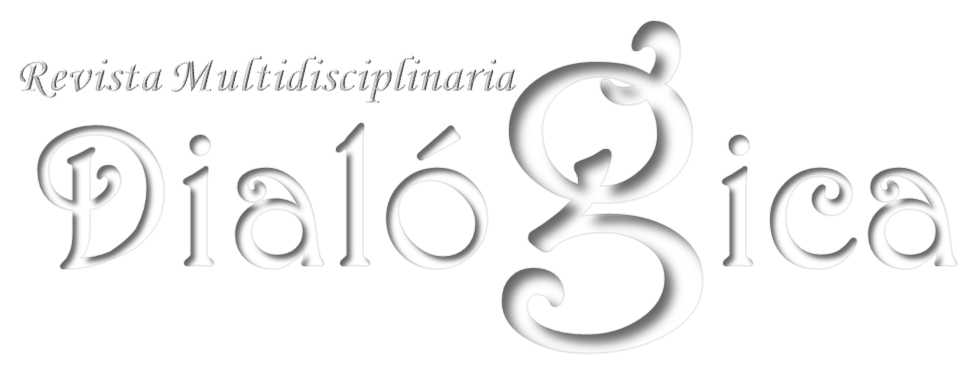STUDY ON THE PRESENT VALUES IN THE CULTURE LAWS OF MEXICO AND VENEZUELA
DOI:
https://doi.org/10.56219/dialgica.v18i1.1535Keywords:
Culture, Laws, Values, Mexico, VenezuelaAbstract
With the purpose of revealing the values present in the Constitutions and Cultural Laws of the Latin American countries: Mexico and Venezuela, this study was carried out supported by the contributions of the theories of German constitutionalism: (a) Normativist of Kelsen, (b) De Heller's Organization, (c) Schmith's Decisionism, (d) Smend's Integrationist, and (e) From Haberle's Culture. In the investigation, the post - positivist paradigm, the qualitative approach, and the hermeneutic method were used, in addition to the documentary investigation, some articles of the Constitutions and Cultural Laws of the countries mentioned above were selected where explicitly it was done reference to cultural issues. For the analysis of the information, we had the contributions of cultural, constitutional and value theories. Because of the triangulation process (Documents - Theories of entry - Researcher) some values were identified in the two Constitutions and the two Culture Laws, such as: Freedom, Equality, Justice, Peace, Life, Solidarity, Democracy, Responsibility, Respect and Creativity.
References
Alvarado, L y García M. (2008).Características más relevantes del paradigma socio – crítico: su aplicación en investigaciones de educación ambiental y de enseñanza de las ciencias realizadas en el Doctorado de Educación del Instituto Pedagógico de Caracas. Documento en línea. Disponible: http://www.redalyc.org/articulo.oa?id=41011837011Consulta: 2014, Abril 15.
Asensi, J. (2003). P. Haberle. Un jurista para el siglo XXI. Documento en línea.Disponible:https://www.academia.edu/8536327/El_estado_constitucional_Haberle[Consulta: 2020, Marzo 23.
Congreso General de los Estados Unidos Mexicanos. (2017). Ley General de Cultura y Derechos Culturales. Documento en línea. Disponible: http://www.diputados.gob.mx/LeyesBiblio/pdf/LGCDC_190617.pdf Consulta: 2020, Enero 30.
Constitución de la República Bolivariana de Venezuela. (1999). Gaceta Oficial de la República Bolivariana de Venezuela, 5453, marzo 24, 2000.
Constitución Política de los Estados Unidos Mexicanos (2016). Documento en línea.Disponible:http://www.ordenjuridico.gob.mx/Constitucion/cn16.pdf Consulta: 2020, Febrero 28.
Díaz, J. (s.f.). El Constitucionalismo Alemán: Aporte de Kelsen, Heller, Schimth, Smend y Haberle. Documento en línea.Disponible: https://dialnet.unirioja.es/descarga/articulo/5498875.pdf[Consulta: 2020, Marzo 23.
Ferrater, J. (1969).Diccionario de Filosofía. Buenos Aires: Sudamericana.
Gaarder, J. (1991).El Mundo de Sofía. Oslo: Siruela.
Ley Orgánica de Cultura. (2014) Documento en línea. Disponible: https://albaciudad.org/wp-content/uploads/2014/12/Gaceta-Oficial-Extraordinaria-N%C2%BA-6.154-LOC.pdfConsulta: 2020, Enero 30.
Malinowski, B. (1931). La Cultura. Documento en línea. Disponible: https://www.ciesas.edu.mx/publicaciones/clasicos/00_CCA/Articulos_CCA/CCA_PDF/037_MALINOWSKI_Cultura_B.pdfConsulta: 2020, Enero 30.
Malinowski, B. (1984). Una Teoría Científica de la Cultura. Sarpe.
Martins, F, y Palella, S. (2010).Metodología de la Investigación Cuantitativa. Caracas: Fondo Editorial de la Universidad Pedagógica Experimental Libertador.
Morales, O. (2003). Fundamentos de la investigación documental y la monografía. Documento en línea. Disponible: https://www.researchgate.net/publication/237611564_FUNDAMENTOS_DE_LA_INVESTIGACION_DOCUMENTAL_Y_LA_MONOGRAFIA Consulta: 2018, Mayo 30.
Sandín, M. (2003).Investigación Cualitativa en Educación. Fundamentos y tradiciones. Barcelona: Mac Graw Hill.
UNESCO. (2001). Declaración Universal de la UNESCO sobre la Diversidad Cultural. Documento en línea. Disponible: http://www.cdi.gob.mx/lenguamaterna/declaracionuniv.pdfConsulta: 2020, Enero 30.


 @revistadialogica
@revistadialogica DialogicaUPEL
DialogicaUPEL RevistaDialogicaUPELMaracay
RevistaDialogicaUPELMaracay dialógicaupel@gmail.com
dialógicaupel@gmail.com dialogicaupel.blogspot.com
dialogicaupel.blogspot.com https://issuu.com/dialogicaupel
https://issuu.com/dialogicaupel https://revistas.upel.edu.ve/index.php/dialogica/
https://revistas.upel.edu.ve/index.php/dialogica/









